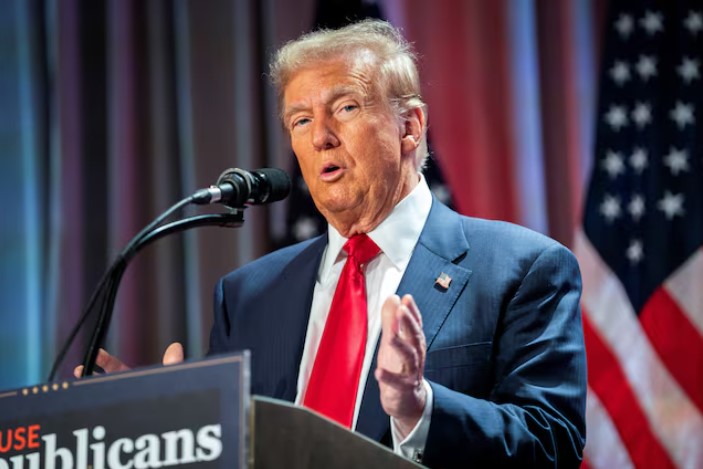On January 14, U.S. President-elect Donald Trump announced that he would create a new government agency called the External Revenue Service to collect tariffs, duties, and revenue from foreign sources. This announcement comes as Trump prepares to impose new import tariffs once he is inaugurated for a second term on January 20.
Trump shared this plan on social media, explaining that Americans have been taxed too long by the Internal Revenue Service (IRS). He criticized past trade agreements for benefiting other countries while hurting the U.S. economy. He stated that the new agency would start charging foreign countries that profit from trade with the U.S., requiring them to pay their fair share.
A spokesperson for Trump’s transition team could not provide further details on how the new agency would operate. It was unclear whether it would replace existing roles of U.S. Customs and Border Protection, which collects tariffs, or if it would affect IRS tax collections related to foreign income.
There were also concerns about whether creating a new agency would add more government bureaucracy. Trump had previously pushed for efficiency in government operations, led by Elon Musk and Vivek Ramaswamy, aiming to save trillions of dollars by streamlining processes.
During his campaign, Trump had suggested replacing U.S. income taxes with revenue from tariffs, but experts argue that this plan is not financially feasible. The Tax Foundation, a conservative think tank, estimates that a 20% tariff on all imports could generate $4.5 trillion over 10 years. However, the economic impact would reduce that amount to about $3.3 trillion over a decade. In comparison, the IRS collected $4.69 trillion in taxes in fiscal year 2023 alone.
Democrats quickly criticized Trump’s proposal. Senator Ron Wyden, a top Democrat on the Senate Finance Committee, accused Trump of attempting to raise taxes on American families and small businesses while benefiting the rich.
Trump has proposed various tariffs, including a 10% tariff on global imports, a 25% tariff on goods from Canada and Mexico until they address border issues, and a 60% tariff on Chinese imports. Trade experts warn that these tariffs could disrupt trade, increase costs for consumers, and provoke retaliation from other countries against U.S. exports.


